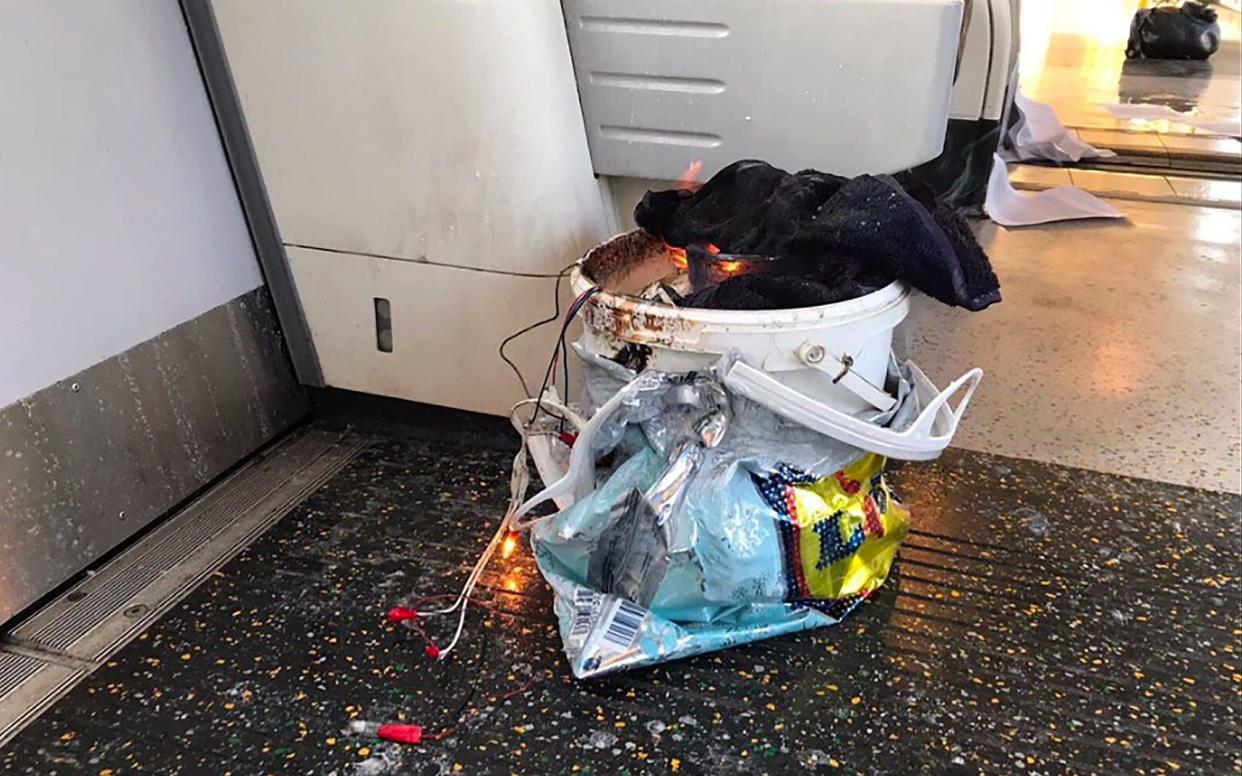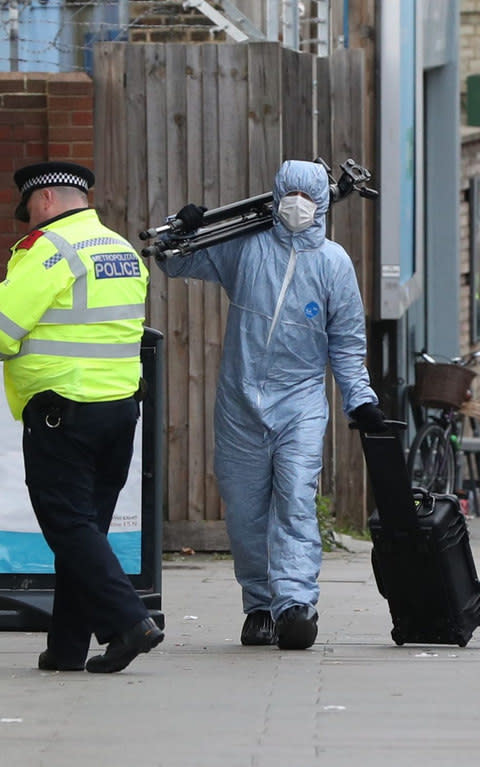European laws to control homemade bomb experiments face 'problems and challenges'

European laws meant to stop terrorists obtaining the ingredients to make bombs like the one that partially detonated at Parsons Green are too lax, a report warns.
Analysis of regulations controlling the sale, marketing and use of potentially lethal chemicals like triacetone and triperoxide (TATP) - the key ingredients of the so-called “mother of Satan” bomb - has revealed “problems and challenges” throughout Europe.
Since 2014, all 28 EU countries are required to ensure that the general public cannot buy pure forms of controlled substances without a licence to show that they have a legitimate professional use for them.
Businesses selling and storing these chemicals also are required to alert authorities about suspicious transactions and stock thefts or disappearances.
But recent attacks on the West London Tube, Manchester arena and Brussels station, as well as the blast at a bomb factory near Barcelona, have highlighted how terror cells are still acquiring raw ingredients, often in purer forms than legally permitted.
The crude Parsons Green device concealed in a Lidl bag, currently being examined by Ministry of Defence scientists at a laboratory, is thought to have had a main TATP charge. The precursor chemicals would have been boiled down to a purer solution. Although, it is exceptionally volatile it can deteriorate very quickly.
A 10-page European Commission report on rules surrounding explosive precursors found an alarming “security gap” in how bomb “precursor” products are controlled.
And, it emerges France and Romania were ticked off in February by the Commission for failing to properly warn the public of penalties for those who do not meet the regulations. The countries were also told to “ensure a regular dissemination of precursors guidelines to retailers”.
Although regulations around more than 15 chemicals have helped security services stop attacks, the report authors says controlling internet sales of potentially lethal substances remains a problem.
There were difficulties also in monitoring import and exports, as well as confusion about what professions entitle people legally to buy controlled chemicals.
The report highlights how chemicals like peroxide and acetone are harder to monitor and control because they are often household products sold by small shops whose staff may be unaware of their obligation to report suspicious customers.
Meanwhile, larger companies with a high staff turnover need to train all employees to spot suspicious customers, the report adds.

While large quantities of chemicals are easy to track, “other products are sold in small quantities and volumes, and are thus more difficult to intercept when they are shipped or transported into and across Europe”, the report says.
It adds: “The threat posed by the use of explosives precursor chemicals in manufacturing homemade explosives by terrorists remains high and is continuously evolving. The Commission’s priority, beyond full implementation of the existing provisions, is to consider what measure and actions could strengthen the system in the future.”
Peroxide, a common bleaching product used for dying hair and cleaning, is only available to the European public if it is under 12 per cent pure. In the UK, a hairdresser or cleaning company must apply for a Home Office licence to be able to buy more concentrated versions of the chemical.
The report says businesses trading throughout the EU in these chemicals “face the challenge of having to adapt to the specific nature of the different regimes in each members state.”

Citing a “possible security gap” over confusion about who is legally allowed to buy chemicals for professional use, the report says that the Commission will consider clarifying what industries should be allowed to obtain purer substances.
“For example, economic operators may have to register all transactions involving professional users and keep records available for inspection by the competent authorities. The above would provide the competent and law enforcement authorities with a better picture of who is accessing which precursors and for what purpose. It would also facilitate early investigation into, and prosecution of, instances of alleged misuse.”
The report, submitted to the European Parliament earlier this year, concludes that the EU regulations have reduced the amount of dangerous chemicals on the market.
It continues: “Member states have reported an increase in the number of reported suspicious transactions, disappearances and thefts due to greater awareness among economic operators [retailers] who handle explosive precursors.”
It concludes: “The Commission, member states and the supply chain of explosives precursors in Europe must jointly step up their efforts to fully implement the existing provisions and identify measure and actions which could strengthen the system around homemade explosives in the future.”

 Yahoo News
Yahoo News 
